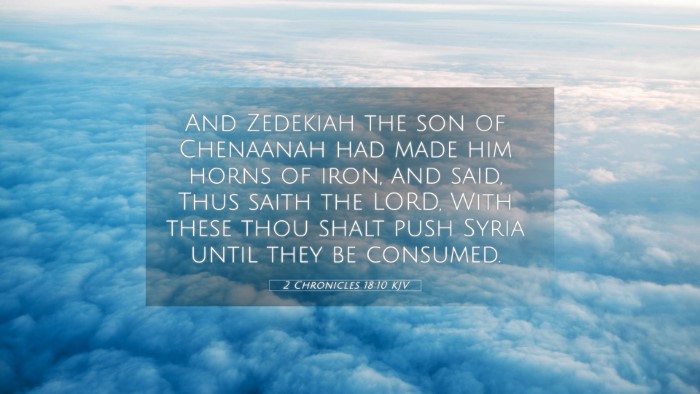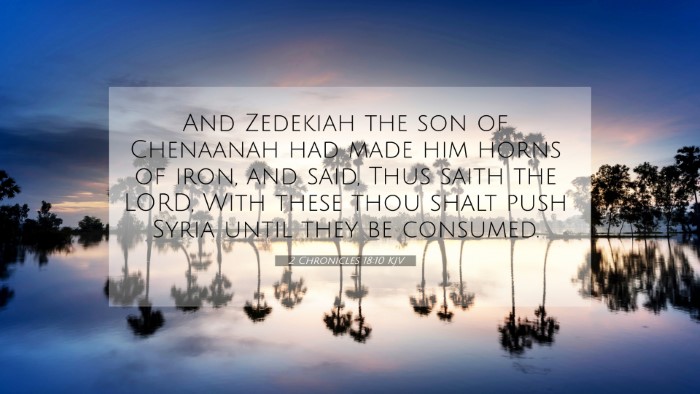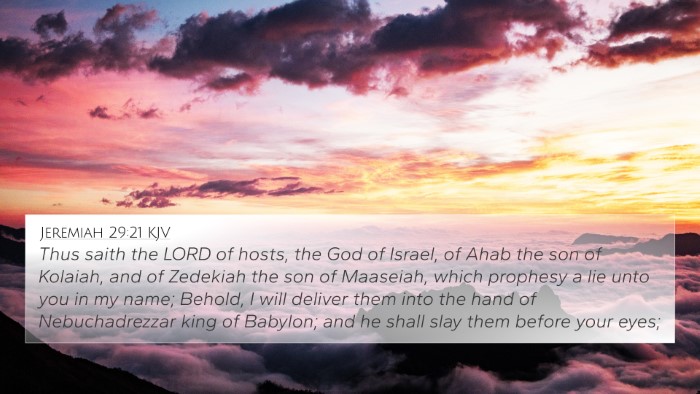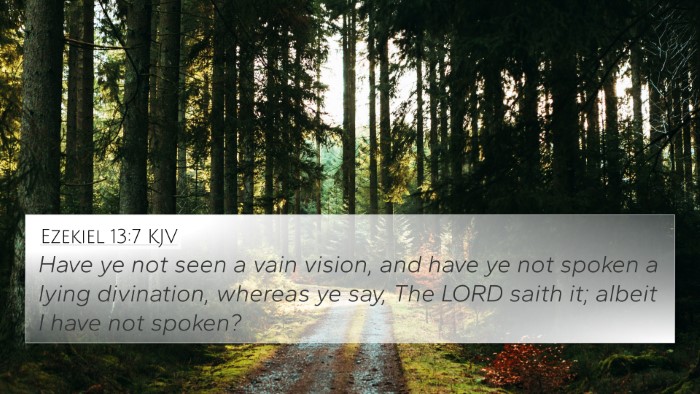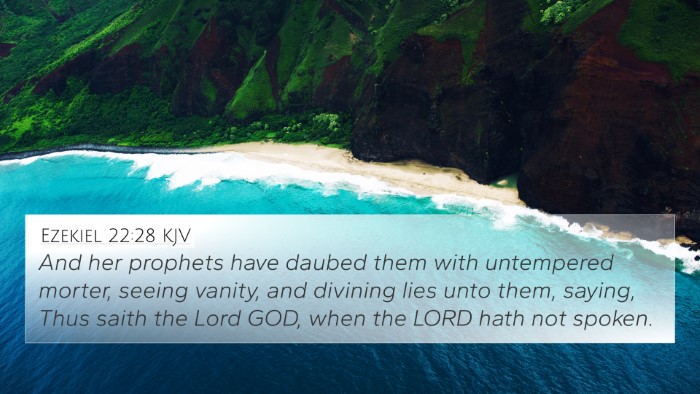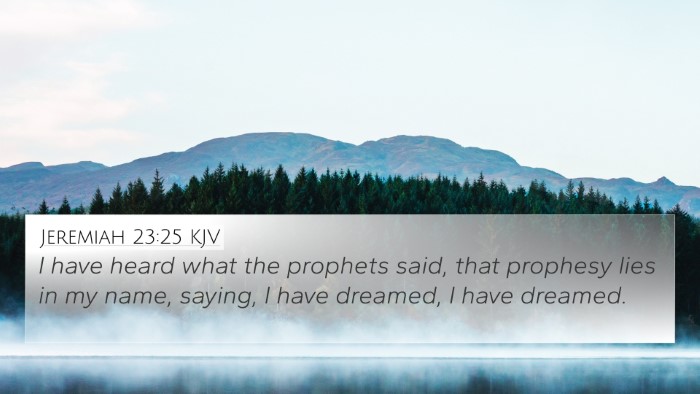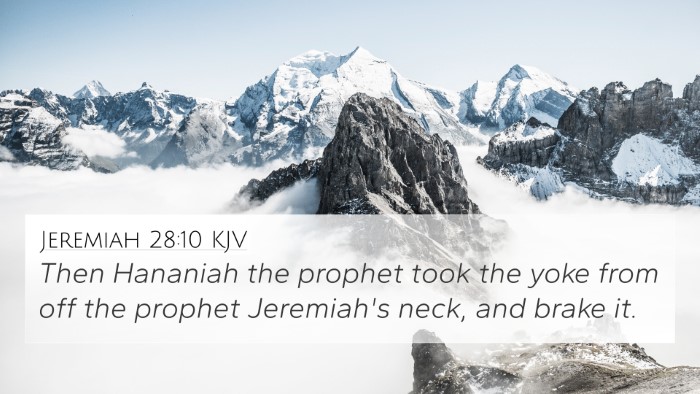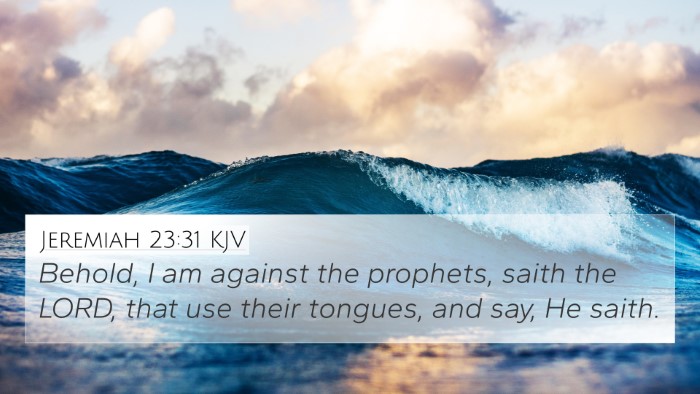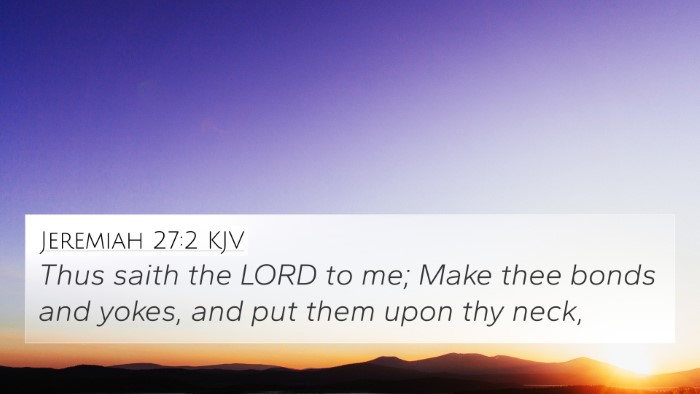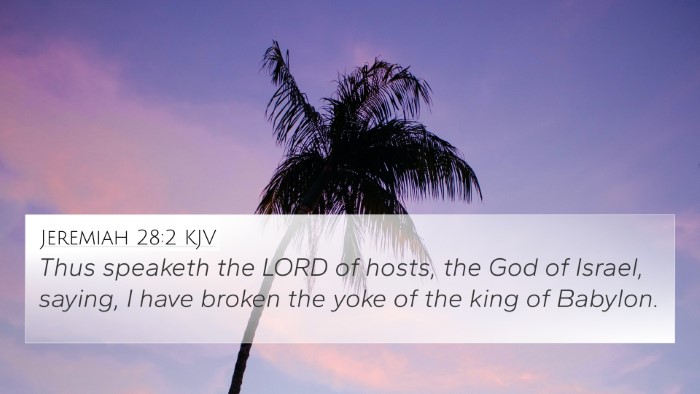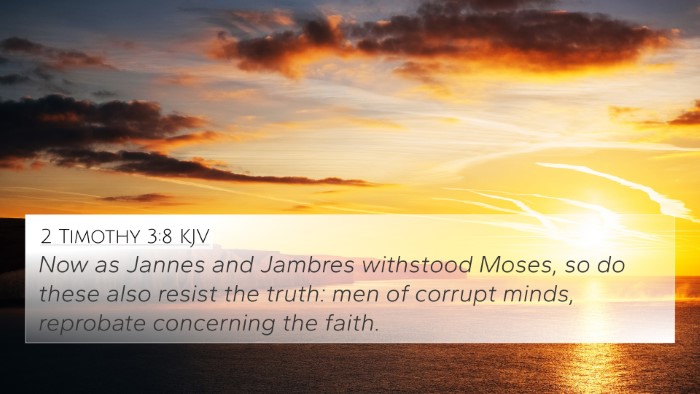Understanding 2 Chronicles 18:10
2 Chronicles 18:10 recounts an essential moment in the narrative of King Ahab of Israel and Jehoshaphat of Judah as they consult the prophets regarding the outcome of a battle. In this verse, a false prophet named Zedekiah is seen making horns of iron to symbolize that Israel will push back the enemies, specifically the Syrians, emphasizing the dramatic nature of his message. This moment highlights themes of prophecy, truth, and divine guidance.
Context of 2 Chronicles 18
This chapter provides a vivid recount of the alliance between Ahab and Jehoshaphat, which was characterized by mixed motives. Jehoshaphat sought the counsel of the Lord, but Ahab surrounded himself with false prophets. Consequently, the dynamic indicates a contrast between genuine and false prophecy.
Commentary Insights
- Matthew Henry's Commentary: Henry emphasizes that the showmanship of Zedekiah with the iron horns symbolizes empty bravado rather than divine truth. His actions represent the deceit of false prophets who inspire confidence based not on God's will but human desire.
- Albert Barnes' Notes: Barnes notes the importance of discernment in the context of prophetic messages. He highlights that Ahab's preference for flattering prophecies fosters a dangerous reliance on falsehoods, while Jehoshaphat's inquiry reflects a righteous pursuit of truth.
- Adam Clarke's Commentary: Clarke discusses the historical significance of this event in Israel's governance and the implications of relying on false prophets. He illustrates the corollary between leadership decisions and their consequences, notably how Ahab’s actions culminated in disaster.
Thematic Considerations
This verse is rich with themes such as:
- Prophecy and Truth: Exploring how true prophecy aligns with God's will versus the deception of false messages.
- Divine Guidance: The importance of seeking God's counsel in critical decisions.
- Consequences of Leadership: The moral responsibilities of leaders in discerning and acting upon truth.
Cross-References for Deeper Insight
To better understand 2 Chronicles 18:10, consider the following cross-references:
- 1 Kings 22:11 - Another account of the false prophets supporting Ahab.
- Jeremiah 23:16 - A warning about listening to false prophets.
- Deuteronomy 18:20-22 - Guidelines on how to identify true and false prophets.
- 1 Kings 22:17 - Micaiah's true prophecy regarding the battle.
- Lamentations 2:14 - Reflections on false visions and their impact.
- Matthew 7:15 - Jesus’ warning against false prophets.
- John 10:12-13 - The good shepherd's relationship with the sheep versus hired hands.
The Importance of Cross-Referencing
For those engaged in Bible studies, understanding 2 Chronicles 18:10 can be deepened through a comprehensive Bible cross-reference guide. Tools for cross-referencing allow deeper insights into scriptures by identifying connections between Bible verses. Exploring such connections will enhance your understanding of scriptural truths and their application today.
Conclusion
In studying 2 Chronicles 18:10, it becomes apparent that the message of the prophets can influence significantly. This verse serves as a cautionary tale about the necessity of discerning truth from falsehood in spiritual guidance. Using cross-referenced themes and related verses, one can conduct a richer study into the Biblical texts surrounding this narrative.

